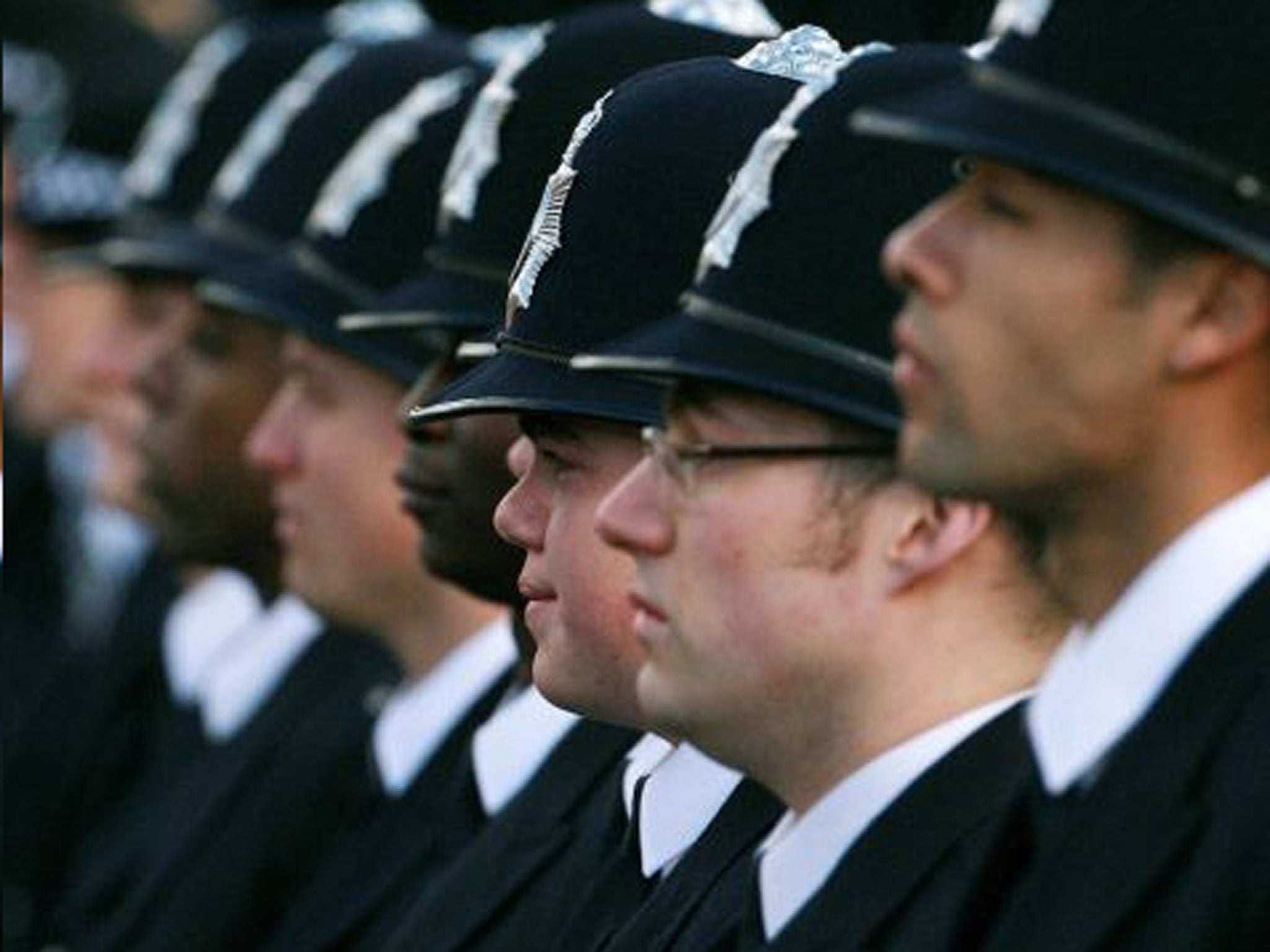Retired general to lead inquiry into police chiefs
The Association of Chief Police Officers faces an independent reveiw

Your support helps us to tell the story
From reproductive rights to climate change to Big Tech, The Independent is on the ground when the story is developing. Whether it's investigating the financials of Elon Musk's pro-Trump PAC or producing our latest documentary, 'The A Word', which shines a light on the American women fighting for reproductive rights, we know how important it is to parse out the facts from the messaging.
At such a critical moment in US history, we need reporters on the ground. Your donation allows us to keep sending journalists to speak to both sides of the story.
The Independent is trusted by Americans across the entire political spectrum. And unlike many other quality news outlets, we choose not to lock Americans out of our reporting and analysis with paywalls. We believe quality journalism should be available to everyone, paid for by those who can afford it.
Your support makes all the difference.A retired military chief is to lead an inquiry into whether the UK's independent association for police chiefs is fit for purpose.
General Sir Nick Parker, who led the London Olympics security support that required over 18,500 personnel, will oversee the independent review into the Association of Chief Police Officers (Acpo).
The Association of Police and Crime Commissioners (PCCs), the elected crime tsars that largely fund the Acpo, have asked Sir Nick to examine the association's role in the new policing landscape, which includes both PCCs and the new professional standards body, the College of Policing.
Sir Nick, who has previous experience of working with the police and local authorities in the UK, said: "Police and Crime Commissioners have asked me to look at the role played by Acpo in the new policing landscape.
"They largely fund the organisation and want to ensure that it is fit for purpose, both operationally and financially, delivering the appropriate capabilities in a manner that is sustainable and exemplifies a cost effective use of public money."
The College of Policing officially launched in February with Chief Constable Alex Marshall as its chief executive.
Next month, the National Crime Agency (NCA) will launch bringing together the work of the Serious Organised Crime Agency, the Child Exploitation and Online Protection Centre and some of the functions of the National Policing Improvement Agency.
And last year, PCCs were elected for the first time as they replaced existing police authorities in 41 force areas across England and Wales and were handed powers to set force budgets and hire and fire chief constables.
Matthew Ellis, Staffordshire PCC, Martyn Underhill, Dorset PCC and Jane Kennedy, Merseyside PCC representing the three political groups have said: "We respect the operational independence of the police but as representatives of the public we need to ensure that Acpo continues to have relevance to the policing challenges of today.
"With the creation of the College of Policing and National Crime Agency we felt it was timely to look at where Acpo fits into the new landscape and establish both how it contributes and how it should be sustained into the future."
Acpo, which became a company limited by guarantee in 1997, provides a professional forum for chief police officers to share ideas and best practice.
Sir Hugh Orde, Acpo president, said: "Chief officers worked closely with PCCs to agree Acpo funding for 2013/14 and support this more fundamental and strategic review as a logical next step.
"The public and police strongly benefit from the facility for operational leaders to meet, act and speak collectively but the shifting national landscape in policing and the particular role of Police and Crime Commissioners mean that it is timely to look again at how Acpo's national support to operational policing can be sustained and delivered in future."
PA
Join our commenting forum
Join thought-provoking conversations, follow other Independent readers and see their replies
Comments